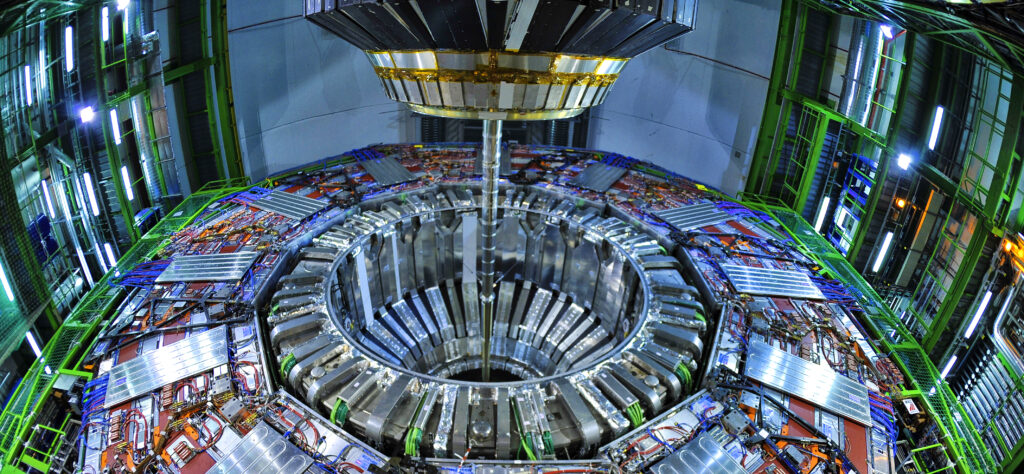Plans for the Future Circular Collider (FCC) are causing a big debate in the world of physics. This $30 billion particle accelerator will be built under the Swiss-French border. The goal is to smash particles at nearly the speed of light to uncover the deepest secrets of the universe. But not everyone agrees with the plan.
The Purpose of the FCC
Supporters see the FCC as a chance to solve big mysteries that the current Large Hadron Collider (LHC) has not yet answered. The FCC will look for clues about dark matter and the imbalance between matter and antimatter. These are some of the most important questions in physics.
The LHC made history in 2012 by discovering the Higgs boson, a key particle. But many questions remain unanswered. The LHC is expected to stop operating by 2040. So, CERN, the organization behind the LHC, wants the FCC to take over. The plan is to run the FCC in stages. First, it will produce Higgs bosons in large numbers. Later, it will collide protons starting around 2070.
CERN’s leadership fully supports the FCC. Director General Fabiola Gianotti calls it “the most powerful tool ever built to study the laws of nature.”
Growing Opposition
Not everyone is on board with the FCC. Many scientists are raising concerns. They worry that the FCC will take up most of the funding for particle physics research for the next few decades. Some also feel CERN is not listening to the broader physics community before pushing forward with such a big project.
Halina Abramowicz, a physicist from Tel Aviv University, is one of the critics. She believes CERN should involve more scientists in the decision-making process. “This isn’t how it’s supposed to work,” she said. In a recent article, Nature reported that the physics community is divided more than ever.
Some critics fear the FCC will prevent funding for other promising research. They point to cheaper and more flexible tech like linear accelerators or plasma wave acceleration. These ideas are already being developed and might offer better results in a shorter time.
“There’s no guarantee this collider will answer the big questions,” said Abramowicz. “It’s a massive gamble.”
The Long Timeline
Another major issue is the timeline for the FCC. The project could take decades to complete. The first stage will focus on Higgs production, but proton collisions may not happen until 2070.
Many scientists are nervous about starting a project that depends on technology that is still in development. The technology needed for the FCC is not ready yet, and some wonder if it ever will be.
“We risk forcing future scientists down a narrow path,” said Jenny List from DESY in Hamburg. “Who are we to decide what our grandchildren should or shouldn’t explore?” This raises a bigger question: should we make decisions today about what science should look like decades from now?
Should We Build the FCC?
Supporters of the FCC argue that such a big project is necessary to push science forward. They believe the FCC can answer questions that smaller, cheaper projects never could. The FCC may lead to breakthroughs in our understanding of dark matter and antimatter.
Paul Bate, from the UK Space Agency, believes the FCC has great potential. He says it could inspire new technologies that benefit people on Earth, even beyond physics.
But many people are asking: is the FCC worth the massive cost? Some feel it might prevent more flexible, cost-effective projects from getting the attention they deserve.
The Decision Ahead
The FCC could change the way we understand the universe. But it is also a risky project with no guarantee of success. As the debate heats up, it’s clear that the FCC will have a huge impact on the future of science.
Supporters argue that it’s worth taking the risk for the chance to make groundbreaking discoveries. But critics warn that it could divert attention from other important work. The outcome of this debate could shape the future of particle physics for decades to come.


